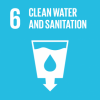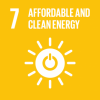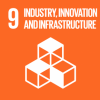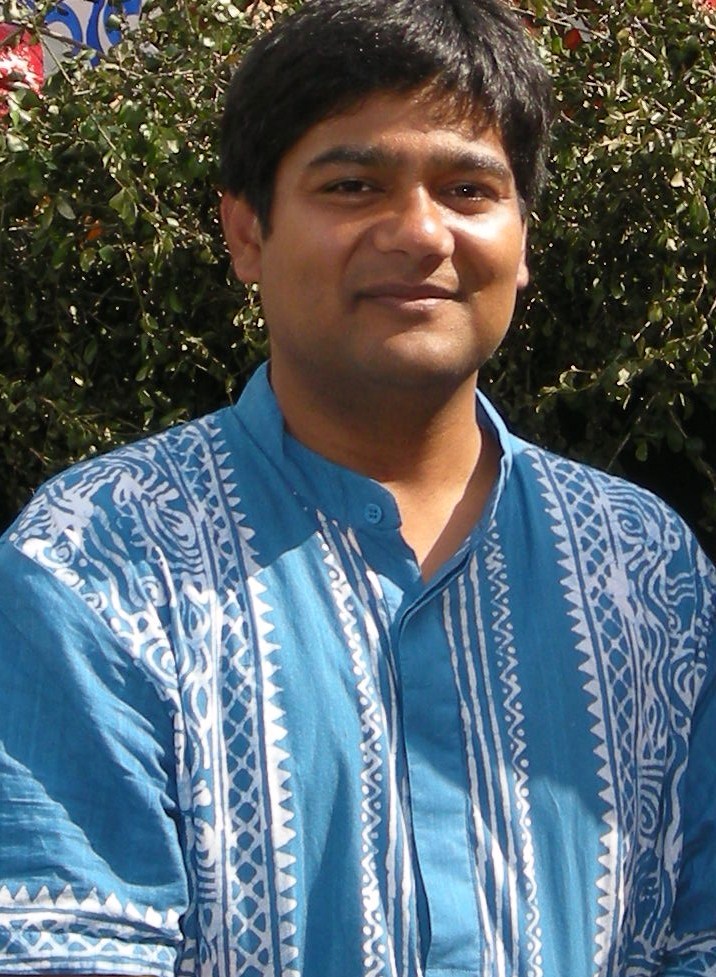|
Affiliation |
Graduate School of Engineering Science Department of Mathematical Science and Electrical-Electronic-Computer Engineering Electrical and Electronic Engineering Course |
|
Date of Birth |
1974 |
|
Laboratory Address |
Kabir Laboratory |
|
Laboratory Phone number |
+81-18-889-2326 |
|
Laboratory Fax number |
+81-18-889-2326 |
|
Homepage URL |
|
|
Mail Address |
|
KABIR Mahmudul
|
|
|
Research Interests 【 display / non-display 】
-
Microbial Fuel Cell
-
waste water purification
-
decontamination
-
電気・電子部品
-
non linear materials
Graduating School 【 display / non-display 】
-
1999.04-2000.03
Akita University Faculty of Mining Graduated
Graduate School 【 display / non-display 】
-
2002.04-2005.09
Akita University Graduate School of Engineering and Resource Science Doctor's Degree Program Completed
-
2000.04-2002.03
Akita University Graduate School, Division of Mining Master's Degree Program Completed
Campus Career 【 display / non-display 】
-
2017.04-Now
Akita University Graduate School of Engineering Science Department of Mathematical Science and Electrical-Electronic-Computer Engineering Electrical and Electronic Engineering Course Associate Professor
-
2016.04-2017.03
Akita University Graduate School of Engineering Science Department of Mathematical Science and Electrical-Electronic-Computer Engineering Electrical and Electronic Engineering Course Lecturer
-
2012.04-2016.03
Akita University Graduate School of Engineering and Resource Science Department of Electrical and Electronics Engineering Lecturer
-
2008.04-2012.03
Akita University Assistant Professor
-
2006.04-2008.03
Akita University Venture Business Laboratory Researcher
Academic Society Affiliations 【 display / non-display 】
-
2011.10-Now
United States
IEEE
Research Areas 【 display / non-display 】
-
Manufacturing Technology (Mechanical Engineering, Electrical and Electronic Engineering, Chemical Engineering) / Electric and electronic materials
-
Manufacturing Technology (Mechanical Engineering, Electrical and Electronic Engineering, Chemical Engineering) / Electric and electronic materials
-
Manufacturing Technology (Mechanical Engineering, Electrical and Electronic Engineering, Chemical Engineering) / Measurement engineering
Research Career 【 display / non-display 】
-
Study on Microbial Fuel Cell Using Water Blooms
Cooperative Research
Periods of research:
2019.04-NowClassification of research form:Collaboration within Japan
Description of SDGs activity:This study will help to improve the water resource environment of eutrophic lake ponds. Again, at the same time it will help to generate clean electricity.


-
Mineral Liberation by Using Electric Pulse
Cooperative Research
Periods of research:
2019.04-NowClassification of research form:International Collaboration
Description of SDGs activity:The ball milling method is commonly used to extract minerals from rocks, but its energy efficiency is very low (i.e. 1%). The ED method has the potential to selectively grind and improve energy efficiency, which is not possible with conventional methods.

-
Non-Linear properties of ZnO particles
Cooperative Research
Periods of research:
2015.04-NowClassification of research form:Collaboration within Japan
-
Decontamination from Radioactive materials by FEM-EK Method
Cooperative Research
Periods of research:
2014.04-NowClassification of research form:Collaboration within Japan
Thesis for a degree 【 display / non-display 】
-
Analysis of Noise Absorbing Characteristics of Multi Layer Chip Varistors by Using Equivalent Circuit
Kabir Mahmudul
2005.09
Single author
Research Achievements 【 display / non-display 】
-
Flexible Ion Adsorption Electrodes Using Natural Zeolite and Rice Husk Charcoal for FEM-EK Treatment
Ayaka Kumagai, Mahmudul Kabir, Shogo Okuda, Hitori Komachi, Naoko Obara, Yusuke Sato,Takahiro Saito, Michio Sato, Masahiro Tomioka, Seiji Kumagai and Noboru Yoshimura
Metals ( Metals ) 13 ( 2 ) 2023.02 [Refereed]
Research paper (journal) International Co-author
-
Role of SiOx in rice‑husk‑derived anodes for Li‑ion batteries
Yusuke Abe, Masahiro Tomioka, Mahmudul Kabir, Seiji Kumagai
Scientific Reports ( Springer ) 12 2022.12 [Refereed]
Research paper (journal) Domestic Co-author
-
Yusuke Abe, Ippei Saito, Masahiro Tomioka, Mahmudul Kabir, Seiji Kumagai
Batteries 8 ( 11 ) 2022.11 [Refereed]
Research paper (journal)
-
Kyosuke Fukushima, Mahmudul Kabir, Kensuke Kanda, Naoko Obara, Mayuko Fukuyama, Akira Otsuki
Materials ( MDPI ) 15 ( 13 ) 2022.07 [Refereed]
Research paper (journal) International Co-author
The equivalent circuit model is widely used in high-voltage (HV) engineering to simulate the behavior of HV applications for insulation/dielectric materials. In this study, equivalent circuit models were prepared in order to represent the electric and dielectric properties of minerals and voids in a granite rock sample. The HV electric-pulse application shows a good possibility of achieving a high energy efficiency with the size reduction and selective liberation of minerals from rocks. The electric and dielectric properties were first measured, and the mineral compositions were also determined by using a micro-X-ray fluorescence spectrometer. Ten patterns of equivalent circuit models were then prepared after considering the mineral distribution in granite. Hard rocks, as well as minerals, are dielectric materials that can be represented as resistors and capacitors in parallel connections. The values of the electric circuit parameters were determined from the known electric and dielectric parameters of the minerals in granite. The average calculated data of the electric properties of granite agreed with the measured data. The conductivity values were 53.5 pS/m (measurement) and 36.2 pS/m (simulation) in this work. Although there were some differences between the measured and calculated data of dielectric loss (tanδ), their trend as a function of frequency agreed. Even though our study specifically dealt with granite, the developed equivalent circuit model can be applied to any other rock.
-
Kyosuke Fukushima, Mahmudul Kabir, Kensuke Kanda, Naoko Obara, Mayuko Fukuyama, Akira Otsuki
Materials ( Materials ) 15 ( 3 ) 2022.02 [Refereed]
Research paper (journal) International Co-author
-
Basic study on the separation of radioactive cesium from the incinerator ash by using Electrokinetic (EK) method
Yoshinori OHTAKE, Masaki TAMBO, Mahmudul KABIR, Arisa INADA, Hiroyuki FUKAYA, Takashi KIDA
Proceedings of the 59th Annual Meeting:Hot Laboratories and Remote Handling Working Group ( HOTLAB ) 2023.10 [Refereed]
Research paper (international conference proceedings) Domestic Co-author
-
Shin Imanishi, Tsutomu Sumimoto, Misa Tawatari, Katsuyuki Hayashi, Yasuyuki Inaniwa, Mahmudul Kabir.
IET Conference Proceedings ( IET ) 2023 ( 46 ) 812 - 816 2023.08 [Refereed]
Research paper (international conference proceedings) Domestic Co-author
-
Electrical Properties of Epoxy/ZnO Composite Material
Yuta Ono, Mahmudul Kabir, Masafumi Suzuki and Noboru Yoshimura
ICMR 2013 Proceedings 338 - 341 2013.11 [Refereed]
Research paper (international conference proceedings) Domestic Co-author
-
Simulation of Electric Properties for Electrical Pulse Liberation of Granite Using Equivalent Circuit Models
福嶋恭介, 神田堅介, 小原直子, KABIR Mahmudul, 大槻晶
静電気学会講演論文集 2021 2021
International Co-author
-
Li Chenglin, Kabir Mahmudul, Yoshimura Noboru
IEEJ Transactions on Fundamentals and Materials ( The Institute of Electrical Engineers of Japan ) 138 ( 8 ) 416 - 421 2018
<p>Illumination covers almost 20%-30% of total electric consumption in office buildings. Using daylight may be a good choice to reduce lighting power consumption. However, the sunlight is dazzling when it enters the room directly and thus cannot be used as a direct light source. Therefore, it is necessary to develop a window system that combines seasonal strong light shielding and daylight utilization as well. In this paper the angle change type blind reflection plate is proposed where the entering sunlight will be reflected to the ceiling and act as a light source for the interior illumination. We have made a simulator for interior illumination system which can be used in any season in a year and it is also applicable in any size of the room. The simulator can use the daylight and has showed a very accurate illumination distribution results which supports the idea that using daylight in interior illumination is good for reducing the electricity consumption in offices.</p>
◆Original paper【 display / non-display 】
◆International conference proceedings【 display / non-display 】
◆Other【 display / non-display 】
Books 【 display / non-display 】
-
Electricity Generation and Hydrogen Production Using Microorganisms
2021.11 ISBN: 978-4781316253
-
Waste Water Treatment and Reutilization
M.Kabir, M. Suzuki, and N. Yoshimura
Intech 2011.04 ISBN: 978-953-307-249-4
Grant-in-Aid for Scientific Research 【 display / non-display 】
-
Grant-in-Aid for Scientific Research(C)
Project Year: 2025.04 - 2028.03 Investigator(s): MAHMUDUL KABIR
-
Grant-in-Aid for Scientific Research(C)
Project Year: 2022.04 - 2025.03 Investigator(s): MAHMUDUL KABIR
-
Grant-in-Aid for Scientific Research(B)
Project Year: 2019.04 - 2022.03
-
Grant-in-Aid for Scientific Research(C)
Project Year: 2018.04 - 2021.03 Investigator(s): MAHMUDUL KABIR
-
Grant-in-Aid for Scientific Research(C)
Project Year: 2014.04 - 2017.03
Presentations 【 display / non-display 】
-
Study on the Long-term Performance of Microbial Fuel Cells (MFCs) Using Activated Sludge
Taku Hajime, Naoko Obara, Mahmudul Kabir
The 10th International Conference on Materials Engineering for Resources (ICMR2025) (Akita, Japan) 2025.10 - 2025.10
-
Study on Granite under Lightning Impulse Voltage with Equivalent Circuit Models
Naoko Obara, Yosuke Koiwai, Mahmudul Kabir, Akira Otsuki
The 10th International Conference on Materials Engineering for Resources (ICMR2025) (Akita, Japan) 2025.10 - 2025.10
-
Electrokinetic Separation of Radioactive Cesium from Incineration Ash using the FEM-EK Process
Yoshinori OHTAKE, Mahmudul KABIR, Hiroyuki FUKAYA, Masaki TAMBO, Arisa INADA
61st Annual Meeting:Hot Laboratories and Remote Handling Working Group (Buenos Aires, Argentina) 2025.09 - 2025.09 HOTLAB
-
Development of Microbial Fuel Cells (MFCs) Using Blue-green Algae and Activated Sludge
Mahmudul Kabir, Taku Ishizawa, Naoko Obara
International Conference on Power Engineering for Research Scholars (ICPERS2025) (India (online)) 2025.05 - 2025.05
-
Basic study on the separation of radioactive cesium from the incinerator ash by using Electrokinetic (EK) method
Yoshinori OHTAKE, Masaki TAMBO, Mahmudul KABIR, Arisa INADA, Hiroyuki FUKAYA, Takashi KIDA
59th Annual Meeting:Hot Laboratories and Remote Handling Working Group (USA) 2023.10 - 2023.10 HOTLAB
Academic Activity 【 display / non-display 】
-
IEEE
2024.04-2025.12IEEE Sendai Chapter
-
2021.04-2024.03
Media Report 【 display / non-display 】
-
Bangladeshi professor commended for rescuing elderly man in snow-hit north Japan


